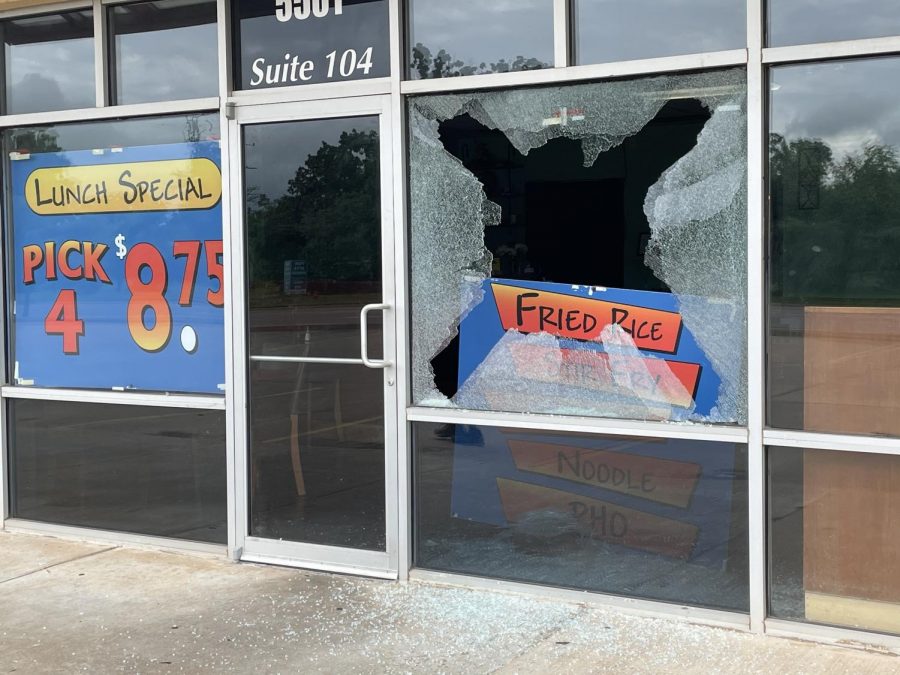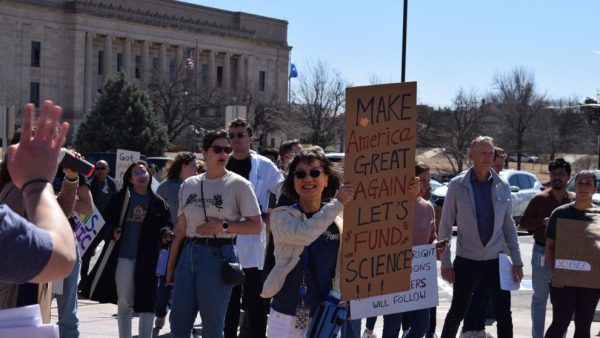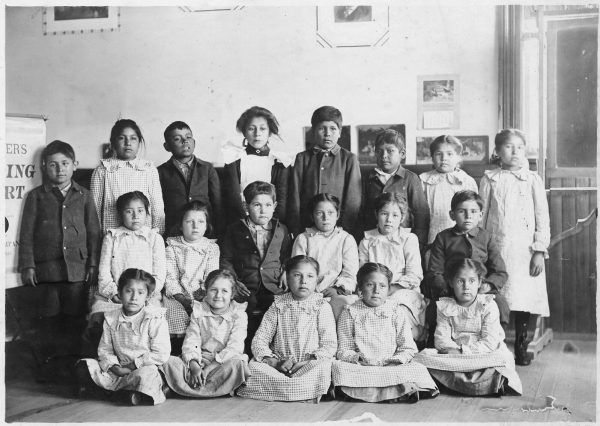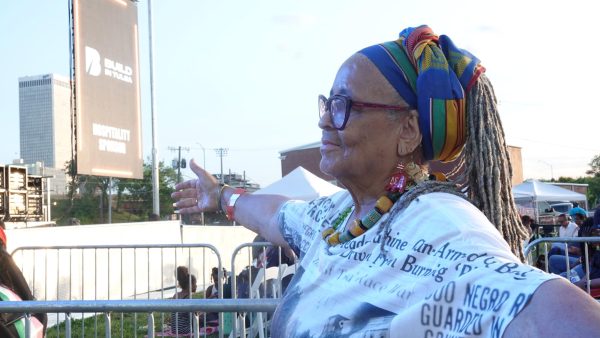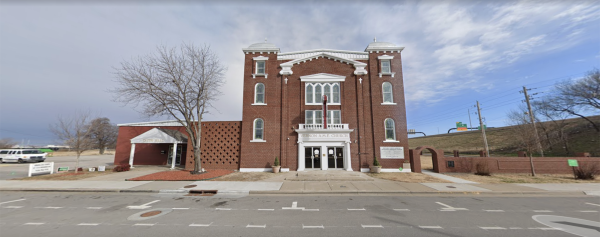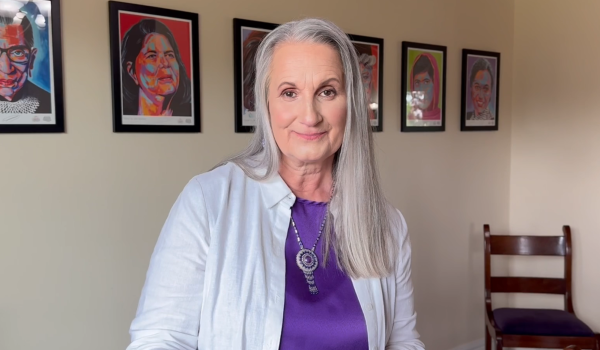Despite anti-hate crime bill, Oklahoma’s Asian American community faces difficulties
Windows at Tasty Thai in Del City were shattered in May. The restaurant was the target of burglary and vandalism four times during April and May. (Provided/Lyn Detphong)
Lyn Detphong, a single mother balancing her job as a full-time nurse with ownership of a Thai restaurant, thought the worst of her struggles were ending earlier this year as the COVID-19 pandemic began to ease.
But starting in April, her Del City restaurant, Tasty Thai, was the target of burglary and vandalism — not once, but four times.
“This is pretty bad right now and I’m at a point that I may have to quit my full-time job,” Detphong sad. “That’s pretty hard on me already with mentally, emotionally, and with everything in the past two months. I’m depressed, you know, I’m depressed.”
The Del City Police Department reported that someone broke into Tasty Thai on April 13 and May 11 and stole TVs, speakers, cash and other items. Then a vandal smashed several of the windows and the front door on May 23 and May 25.
“For the third and fourth time, he didn’t even attempt to get in,” Detphong said. “It looks like he had a plan just to come and break the door.”
Bradley Rule, of the Del City police, said a single suspect is believed to be responsible for the incidents.
With no obvious motivation for the vandalism, Detphong and members of Oklahoma’s Asian community said it’s another example of the increase in hate crimes against Asians in the wake of the pandemic.
Rule said they have not ruled out the vandalism being a hate crime, but there was not enough evidence to prove it was racially motivated.
“Normally [with hate crimes] in the U.S., the victims have either received hateful phone calls or hateful mail or racist graffiti, but there wasn’t any of that,” Rule said.
The May passage by Congress of the COVID-19 Hate Crimes Act has been hailed as a positive step toward addressing the increase in anti-Asian sentiment. But some members of Oklahoma’s Asian-American community remain unconvinced it will reduce hate crimes.
“I think having our legislature acknowledge that these things are a problem is a very powerful step in the right direction,” said Veronica Laizure, co-chairman of the Asian Task Force on Domestic & Sexual Violence.
“[However], I’m not confident that criminal legal system responses to a social problem are actually going to eradicate crimes against Asian-Americans.”
The bill had overwhelming bipartisan support, despite several dissenting voices.
“Even with one person that has a different belief, the bill passed,” said Thuan Hoang Nguyen, president of Oklahoma City’s Asian District Cultural Association. “There are some good things about it, and potentially delays where it can actually end up hurting us.”
Signed into law May 20, the act provides for a designated officer in the Department of Justice to review hate crimes reported in Asian communities across the nation. The law also provides resources to make reporting more accessible at the local and state levels.
Rep. Kevin Hern (R-Tulsa), one of 62 Republicans who voted against the bill, said anti-Asian hate crime is troubling, but he thinks there are already enough hate crime laws.
“[The bill] is really read to stop our free speech and First Amendment rights, and I don’t think that you should be able to make a bill to stop the constitutional right of free speech,” Hern said.
“Why don’t we go and help our police officers make sure they have the right funding to seek out why, if there are more hate crimes, they’re not getting reported? This makes sure the police have the money to investigate this.”
According to a report by Stop AAPI Hate, more than 6,000 incidents of anti-Asian hate crimes were reported nationwide between March 2020 and March 2021.
Detphong said that Tana Thai restaurants in Midwest City and Oklahoma City were vandalized at about the same time as Tasty Thai. But Nguyen said proving the incidents were hate crimes can be difficult.
“We don’t know and we can’t really define that as a hate crime,” Nguyen said. “We can’t find the perpetrator and say this is an Asian hate crime, because the burden of proof is a little bit harder to prove when it involves Asian hate and racism.”
According to the DOJ, it must be proven the crime was motivated by bias against the victim’s race, color, religion or other characteristics.
Detphong believes the vandalism at Tasty Thai is an example of a hate crime against a member of the Asian community. With several dispensaries nearby, it would make more sense for burglars to target those businesses for money rather than her restaurant, she said.
“People hate Asians because they think COVID is from China,” Detphong said. “This is a hate crime, but I don’t know if we were targeted because [our restaurant] has an Asian name [or for another reason].”
Support in situations like this is something that Depthong said she has been lacking. Having quit her job as an ICU nurse at the beginning of the pandemic for the safety of her family, she took another nurse position at Crossroads Hospice in Oklahoma City to help provide for her family and keep her restaurant afloat.
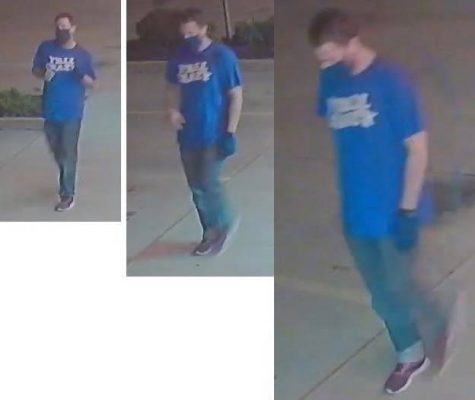
Her customers remained supportive during the pandemic, but Depthong said it has been hard to stay in business, and the criminal incidents left her with more financial strains. She said she has paid for everything out of her personal funds without help from insurance, local authorities or the Del City community.
“This is hard for us in the Asian community, but I don’t know if we have one or any community that supports Asians,” she said. “The Thai community here is also very small, and we don’t have any association that can support, protect us or advocate.”
Police have recovered security footage of the suspect and have asked the community to help identify him. DCPD said the suspect is an approximately 6-foot-tall white male, driving or associated with a late 1990s or early 2000s Lexus or Infiniti sedan.
Gaylord News is a reporting project of the University of Oklahoma Gaylord College of Journalism and Mass Communication.

[email protected]
https://twitter.com/vyl_media
https://www.linkedin.com/in/vyl69/

